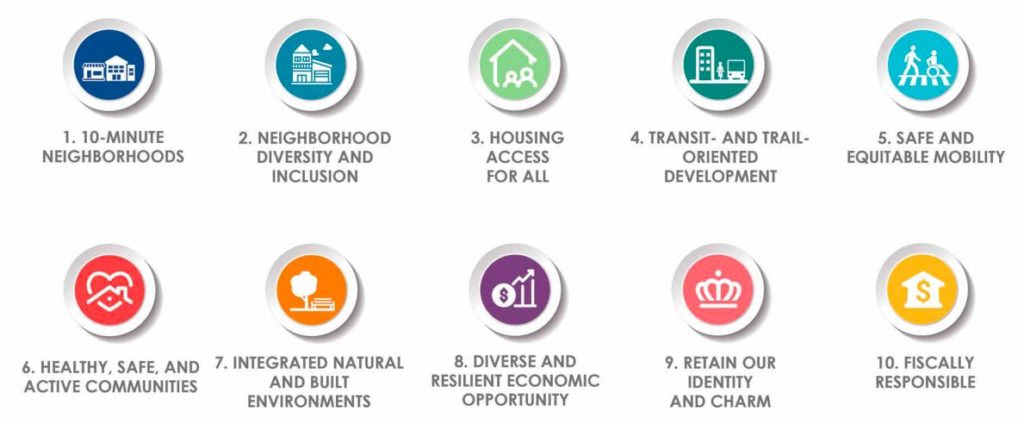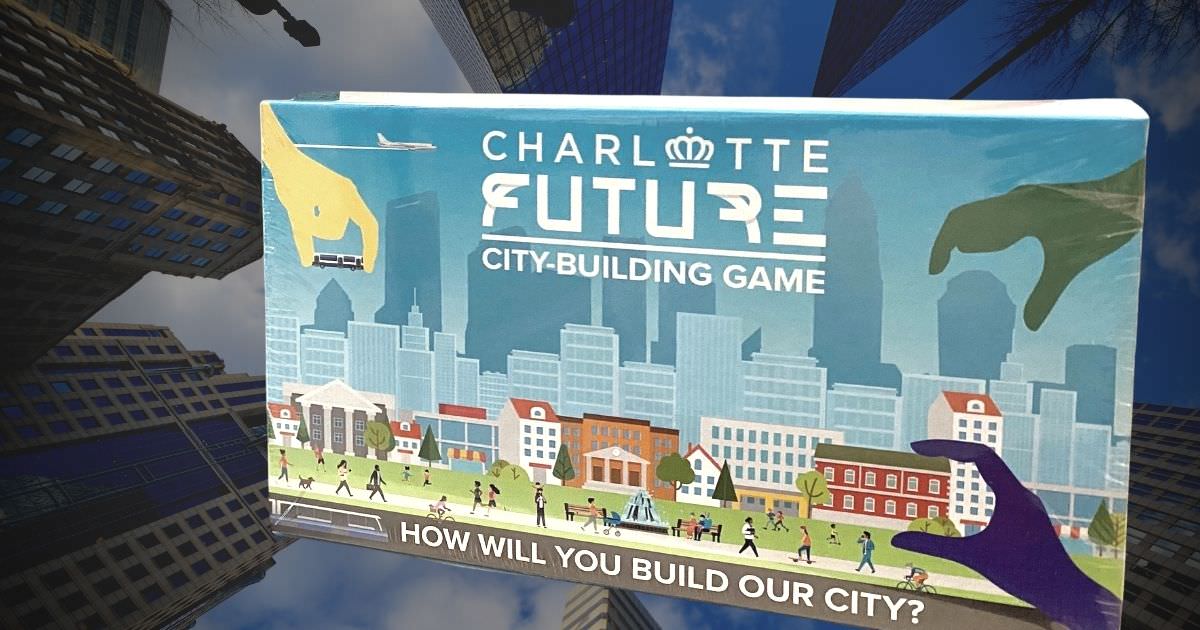The Charlotte Future 2040 Comprehensive Plan is a far-reaching vision designed to guide the city’s growth for the next 20 years. Released in draft form at the end of October 2020, we at Wells + Associates Charlotte transportation team are focusing on aspects of the plan relating to multimodal transportation, parking, transit- and trail-oriented development, and community mobility.
Developed by the City of Charlotte, the plan states that:
“A comprehensive plan is a blueprint for a city’s next phase, a statement on a community’s character, and a guiding light for determining a community’s goals and aspirations for the future.”
On October 31, the City hosted a drive-in movie-style event to introduce the draft plan, the goal of which is to “help ensure a high quality of life for residents and an attractive community for employers and employees,” focusing on improving residential, mixed-use, commercial, campus, and community areas.
Here are a few areas of the draft Plan that are of particular interest to our firm, our colleagues, and our clients:
Shared Parking, Improved Transit Options, and Affordable Housing
 Shared Parking is a parking management system that allows parking spaces to be shared by more than one user. As you might surmise, this enables parking facilities to be used more efficiently by users of all kinds such as employees, shoppers, diners, and weekend users. Shared parking thus increases use of space by more people within a community. Spaces can be zoned rather than assigned to a particular user and can also be shared between sites.
Shared Parking is a parking management system that allows parking spaces to be shared by more than one user. As you might surmise, this enables parking facilities to be used more efficiently by users of all kinds such as employees, shoppers, diners, and weekend users. Shared parking thus increases use of space by more people within a community. Spaces can be zoned rather than assigned to a particular user and can also be shared between sites.
The Comprehensive Plan aims to foster a “developer-community collaboration.” This includes supporting the evolution of existing underserved neighborhoods into “complete neighborhoods” through regulatory changes such as increasing shared parking allowances.
The development of transit-oriented areas and an increased variety of housing types can also be supported with shared parking. The Plan links the goal of improving housing choices and options with access to transit. As the Charlotte Future website states: “The proposed policies also call for creating and expanding resources to produce and preserve affordable housing and minimizing the displacement of residents and creating affordable transportation options to improve access to jobs.”

TDM (Transportation Demand Management)
Transportation Demand Management strategies encourage the use of more non-automobile methods of transportation. The Comprehensive Plan aims to use TDM programs to develop safe and equitable mobility choices for travelers across all ages, incomes, abilities, races, and housing locations. The Plan proposes that the Charlotte Department of Transportation (CDOT) serve as the lead agency for TDM planning, with support from the Charlotte Planning, Design & Development Department.
Street Lighting
Properly designed street lighting helps improve communities by enhancing traffic flow, increasing safety, reducing energy consumption, and preventing lighting pollution. The Comprehensive Plan aims to support equity and increase and improve multimodal choices partly through improved street lighting. Specifically, the plan calls for the conversion to LED lighting and installation of new street lights within Charlotte’s existing mobility network.
The Plan also calls for improved street lighting to protect Naturally Occurring Cultural Districts (NOCDs) and improve placemaking, and as part of the effort to improve infrastructure that is aligned with Charlotte’s growth strategy.
Transit-Oriented Development
The draft Plan notes that some initiatives have already been achieved. This includes the approval and adoption of revised Transit-Oriented Development (TOD) districts in 2019 as well as the rezoning of over 1,000 parcels along the Blue Line light rail corridor.
TOD is a key component of developing modern transportation networks that rely less on automobiles, provide a greater array of multimodal transportation choices, increase mixed-use development, and encourage the development of improved communities. These higher-density communities combine residential, commercial, office, and civic uses with access to active transportation modes, modernize parking approaches, and better experiences for tenants and developers alike through the development of customized TDM programs.
“Charlotte will promote moderate to high-intensity, compact, mixed-use urban development along high-performance transit lines and near separated shared-use paths or trails.” This includes increasing “the number of developments that are transit-oriented in both location and design.”

